Education: Teachers

Wilma Shore
Wilma Shore was a writer and teacher most active between the 1940s and the 1960s. She lived at various times in Los Angeles and New York City, settling finally in New York City. Involved with left-wing political activity, she and her husband were blacklisted during the House Committee on Un-American Activities hearings.
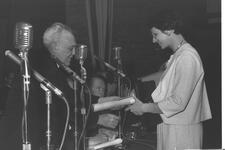
Judith Tannenbaum Shuval
Judith Shuval is one of the main scholars in the field of the sociology of health in Israel. Her research on migration and health, inequality in health, self-care in health, the doctor-patient relationship, and the processes of professional socialization has been based in concrete life in Israel and has broader implications for such topics cross-culturally.
Chava Slucka-Kesten
Chava Slucka-Kesten started teaching in Warsaw before World War II and continued her career through the war in Moscow. After the war she became an author and sustained her political involvement. Writing from the perspective of a politically engaged woman, Slucka-Kesten offers a unique glimpse into pre- and post-war Jewish life in Poland’s cities and villages, as well as into the early years of the State of Israel.
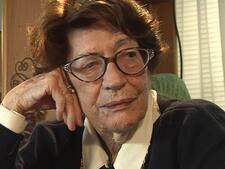
Michal Smoira-Cohn
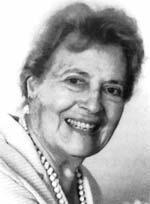
Virginia Snitow
Virginia Levitt Snitow was a multifaceted woman who was a teacher, political activist, pre-Second Wave feminist, poet, writer and founder of US/Israel Women to Women. Ahead of her time in the fight for both civil and women’s rights, Snitow was unafraid to take unpopular stances when fighting for others.
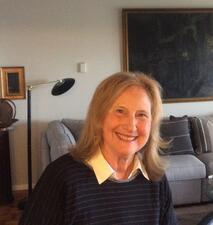
Sociology in the United States
Jews have made a disproportionate contribution to the field of sociology, despite discrimination and exclusion. Because sociologists are not identified by religion, it is difficult to know which American women sociologists are Jewish. Therefore, the first challenge in understanding the contribution and experience of American Jewish women sociologists is to identify them.
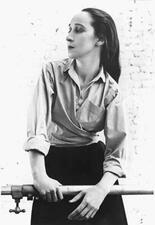
Anna Sokolow
Anna Sokolow (1910-2000), an American dancer and choreographer of Russian-Jewish descent, danced with the early Martha Graham Company and created many international dance-theater works of social and political significance.
Barbara Miller Solomon
Barbara Miller Solomon was not only an educator but a pioneer in the field of women's history. Named the first female dean of Harvard College in 1970, she laid the groundwork for the formal establishment women’s studies there. Her scholarship on the history of immigration and women's history remains influential today.
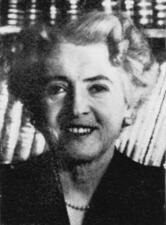
Bertha Solomon
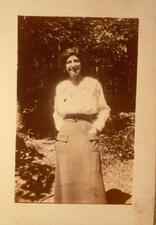
Maida Herman Solomon
Professor of social economy Maida Solomon was recognized as a pioneer in the field, contributing to the “invention” of the field of psychiatric social work and overseeing its definition, its development of standards, and its integration with the other institutions of modern American medicine and education—in short, its professionalism.
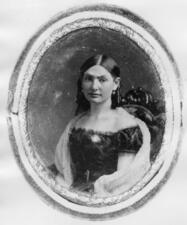
Hannah Marks Solomons
Hannah Marks Solomons was an influential San Francisco educator and civic worker, as well as the wife of a leading member of the Jewish community.
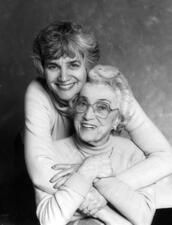
Miriam Belsky Solotaroff
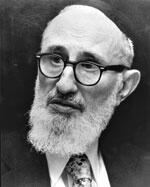
Soloveitchik, Rabbi Joseph Dov
Joseph Dov Soloveitchik shaped Jewish practice and public opinion through the era of second-wave feminism. Despite his sometimes progressive actions, Soloveitchik maintained that women and men had separate religious and familial roles. These positions from the leader of the Modern Orthodox community cemented resistance to Orthodox feminists’ demands to increase their participation in Jewish rituals.
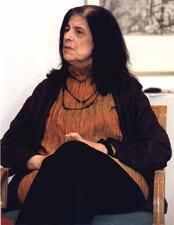
Susan Sontag
Susan Sontag was one of the most prominent American writers of the twentieth century. Her work across cultural criticism, fiction, drama, and film, as well as her public persona, made her an icon of the New York intelligentsia whose writing on photography, illness, and art continually inspire engagement and debate.
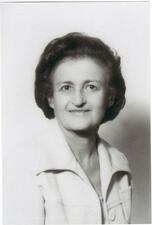
Johanna Spector
Johanna Spector was an influential ethnomusicologist whose writings, recordings, and film projects documented the music of little-studied Jewish communities from around the world. After surviving the Holocaust, Spector earned her doctorate, founded the ethnomusicology department at the Jewish Theological Seminary, established the Society for the Preservation of Samaritan Culture, and served as president of the Asian Music Society.
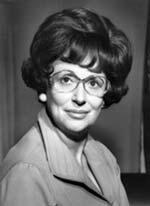
Gladys Noon Spellman
During her five years in Congress, Gladys Noon Spellman was a voice for fiscal reform. Elected in 1975, Spellman served on the Committee on Banking, Currency and Housing, the Democratic Steering and Policy Committee, and the Committee on Post Office and Civil Service. Her service coincided with a period of American politics in which Jews were becoming increasingly visible, both as voters and as elected officials.
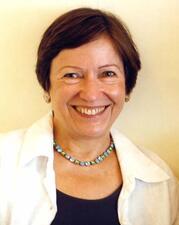
Ruth Sperling
Dora Spiegel
Dora Spiegel served in many fields, including education, the organization of league sisterhoods, and publications stimulating women’s loyalty to the synagogue and the Jewish home. She helped found the Women’s Institute of Jewish Studies at the Jewish Theological Seminary of America, influencing the lives of countless Jewish women and children.
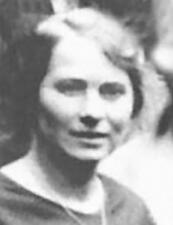
Sabina Spielrein
Miriam Spira-Luria
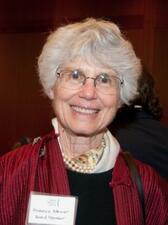
Prudence L. Steiner
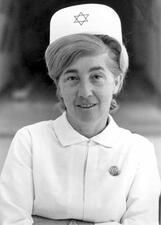
Judith Steiner-Freud
As a Holocaust survivor, Judith Steiner-Freud fulfilled her faithful and influential mission. From the 1940s to the 2010s, she devoted herself to the calling of transforming nursing into an academic profession, raising the status of Israeli nurses, and promoting the welfare of Israeli society and other diverse population groups.

Lina Solomonovna Stern (Shtern)
Lina Shtern, biochemist and physician, was the first woman professor at the University of Geneva and the first woman named to the Soviet Academy of Sciences. Born in Latvia, then part of the Russian Empire, she returned to the Soviet Union out of political idealism. A member of the Jewish Anti-Fascist Committee during World War II, she was a victim of postwar repressions that targeted both scientists and Jews.
Bessie Cleveland Stern
Bessie Cleveland Stern is most recognized for her work as statistician for the Maryland Board of Education. She collected and interpreted data about the Maryland school system from 1921 through 1948, and school officials turned to her for information to support appropriations measures and proposed changes in state laws relating to the schools.
Eva Michaelis Stern
Eva Michaelis Stern was co-founder and director of the fundraising arm of the Youth Aliyah in Germany, and later the director of the Youth Aliyah office in London. Over the course of WWII, she helped more than 1000 children from countries all over Europe immigrate to Palestine.


